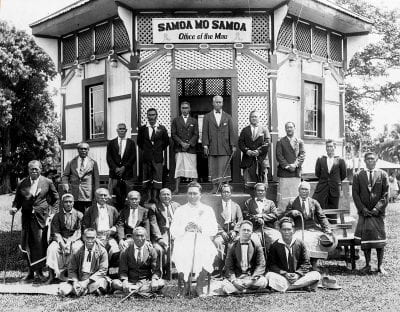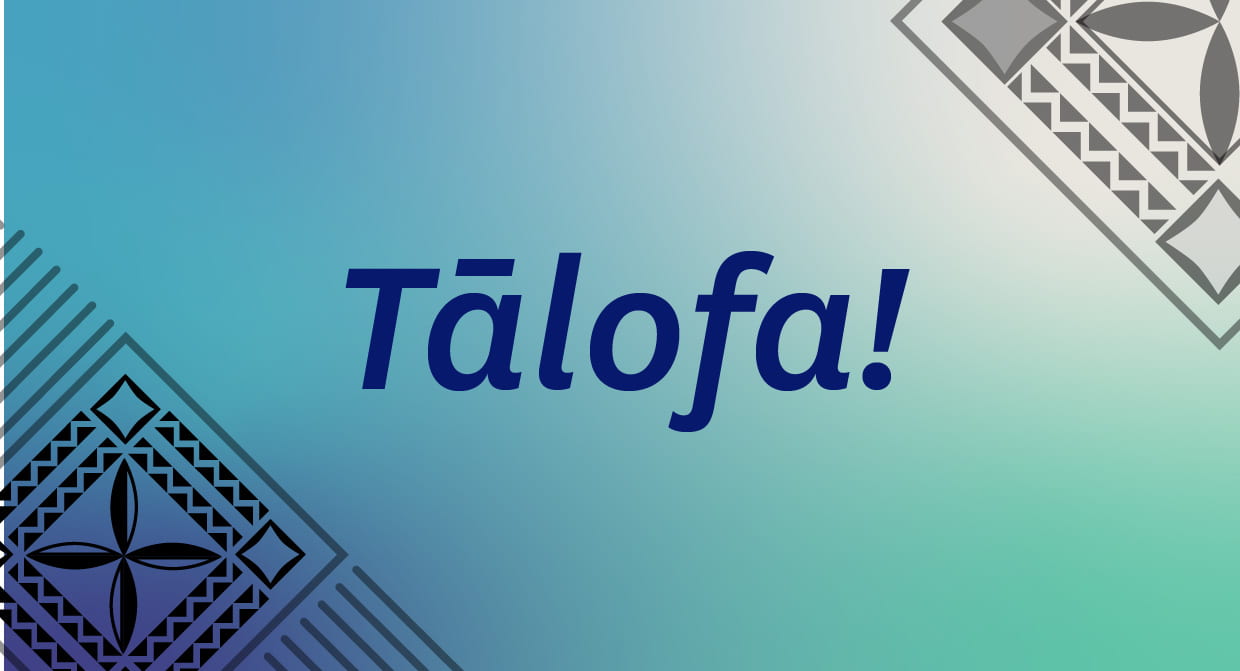Tālofa! Susū mai! Afio mai! Maliu mai! Welcome to Vaiaso o le Gagana Sāmoa – Samoa Language Week, Sunday 29 May-Saturday 4 June 2022, including Samoa’s 60th year of Independence on Wednesday 1 June 2022.

Tattersall, Alfred James, 1866-1951. Group of men, including Tupua Tamasese Lealofi III, gathered around the office of the Mau. Ref: PAColl-0691-2. Alexander Turnbull Library, Wellington, New Zealand. /records/23095865
Events
The University of Auckland Samoan Students Association (UASSA) welcomes you to the following events taking place during Samoa Language Week:
Monday 30th May: Opening Lotu and Ava Ceremony
Where: Fale Pasifika
Time: 9am – 11am
Wednesday 1st June: Showcase and Samoan Independence Day
Where: Quad
Time: 10am – 3pm
There will be guest performers, items by UASSA and a sausage sizzle
Friday 3rd June: Closing and Faiga Lotu
Where: Cultural Space
Time: 6pm-9pm
Prayer time followed by games and activities
Alofa Vaifale, on behalf of the Samoan Students Association (UASSA)
Songs of the Mau
To mark the 60th Anniversary of Samoa’s Independence in 1962, the Archive of Māori and Pacific Sound presents rare recorded songs from the League of Samoa, known as O le Mau a Samoa – or Mau in short.
The Mau was a non-violent movement for Samoan political independence from New Zealand colonial administration during 1920-1935. Their efforts would ultimately result in the political independence of Samoa in 1962.
Mau means ‘resolute’, or ‘unwavering’, and denotes ‘firm strength’ in Samoan. The motto for the Mau were the words Samoa mo Samoa, meaning ‘Samoa for the Samoans.’
Historians recall their use of singing to rally support, create and sustain a sense of group identity, and ridicule the opposition:
[Major-General George] Richardson reported that a group of Mau from Savai’i had marched through Apia streets singing what he called “defiant and obscene songs.” He said he had identified the responsible chiefs and had ordered them to appear before the Fono a Faipule [Government Council] to explain themselves. As they had refused he would arrest them on breach of the peace charges. But, said Richardson, he would need six extra police from New Zealand. (Field 1984, 110)
Listen to recorded songs of the Mau from the 1940s, dubbed from New Zealand Broadcasting Service 78 rpm discs by Dr Richard Moyle during a trip to Samoa in the 1960s:
TV and Radio
For further items on Samoan language and history be sure to watch Media Services’ language week playlist.
Discover more
- Richard Moyle, The Banning of Samoa’s Repatriated Mau Songs (2018)
- Michael Field, Mau: Samoa’s Struggle against New Zealand Oppression (1991) and Black Saturday: New Zealand’s Tragic Blunders in Samoa (2006)
- Malama Meleisea, The making of modern Samoa: Traditional authority and colonial administration in the history of Western Samoa (1987)
For more information explore our Library resources and visit the MPP website.
Huni Mancini, Archive of Māori and Pacific Sound
References
Archive of Maori and Pacific Music. 2004. Songs of the Mau. CD. Auckland: Archive of Maori and Pacific Music, University of Auckland.
Field, Michael J. 1984. Mau: Samoa’s Struggle against New Zealand Oppression. Wellington: Reed.
Moyle, Richard. 2018. The Banning of Samoa’s Repatriated Mau Songs. The Oxford Handbook of Musical Repatriation. Ed. Frank Gunderson, Robert C. Lancefield, Bret Woods.

